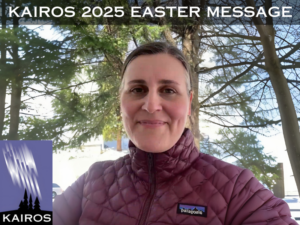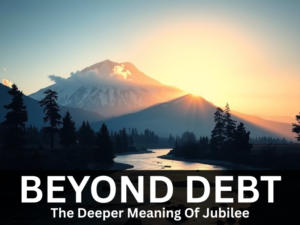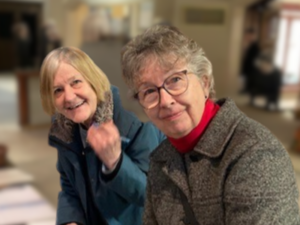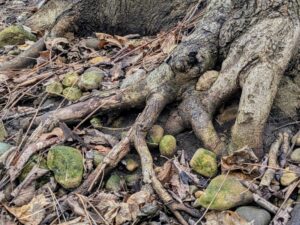Walking the Red Road – National Aboriginal Day (June 21st)
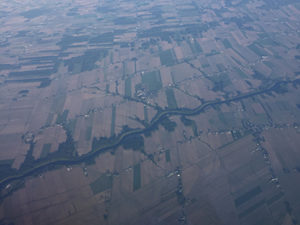
I thank Creator for making me who I am and guiding my steps as I try to walk “the Red Road” in “the Way of Jesus.” Then, I say thank you to the Mohawk people of the Iroquois Confederacy who have graciously welcomed me onto their land as a guest, an African-American Choctaw Pawnee living in Montreal, un-ceded territory. Having just returned from a symposium hosted by the North American Institute for Indigenous Theological Studies, I am overwhelmed with gratitude for the welcome and guidance of the elders from this land and beyond. I am a product of a parallel story of injustice south of the border in the United States that has deprived me of learning the ways of my people. However, in Kanata, I have experienced two aspects that mark Indigenous theology on both sides of the border: relationship and land.
Here, I have seen and heard the Indigenous peoples’ heart for their ancestral lands. Land is not something we own or a place we live; it is part and parcel of our very identity. Relationship within creation is also a key element. People, plants, animals, water, and earth are related and interconnected in ways that cannot exist without the others. Land and relationship connect us to the sacred hoop that is life. Sadly, in too many ways, past and present, that sacred hoop has been broken. Settler/Indigenous relations have been contentious for most of Canada and the United States’ history as a result. But this does not have to be the continuing narrative.
Walking the Red Road together
The Red Road, right relationship, is not just for Indigenous people. It is for all people. We can begin to walk together in this when we place ourselves in positions to learn from each other and to value the dignity of all of creation. Patricia Courtenay, a Gurang Gurang and Birri Aboriginal Anglican priest from Australia, presents a way forward: listen, respect, and respond. We must listen deep to all that is around us. This happens not just with our ears, but also with our hearts. We must ask ourselves, am I putting myself above my neighbor, and thus keeping myself from learning? Ignorance of history and of the plight of our neighbors is a blindness that gives way to all manner of broken relationship. Next, we must respect each other. Acknowledging Creator, land, host peoples, and each other is a great place to start. When we honor each of these, there isn’t much room for hatred or disrespect left. Humility and gratefulness for welcome onto the land demonstrates walking in right relationship with those who were here before any other settler or guest arrived. And finally, we must respond to injustice, however it manifests around us. This could be as simple as picking a piece of garbage up off Mother Earth or as complex as wrestling with our communities about how best to follow the Truth and Reconciliation Commission’s Recommendations. Wherever we find ourselves in the process, we can respond to our interconnectedness by reaching outside of ourselves to care for “the other.”
On this, my first National Aboriginal Day here in Canada, I pray that these words may spur us on toward reconnection in “the Good Way” to the sacred hoop of life through right relationship and respect for the land. Yakoke hoke for the honor to share and for the welcome to walk alongside you, all my relations. Ome.
Kenny Wallace, Aboha ‘a Chihowa, is an Afro-Metis from the United States with heritage from the Choctaw and Pawnee Nations as well as being African-American. He is completing a doctorate in Worship Studies through the Robert E. Webber Institute for Worship Studies with a focus on Christian contextualization of Indigenous worship.









